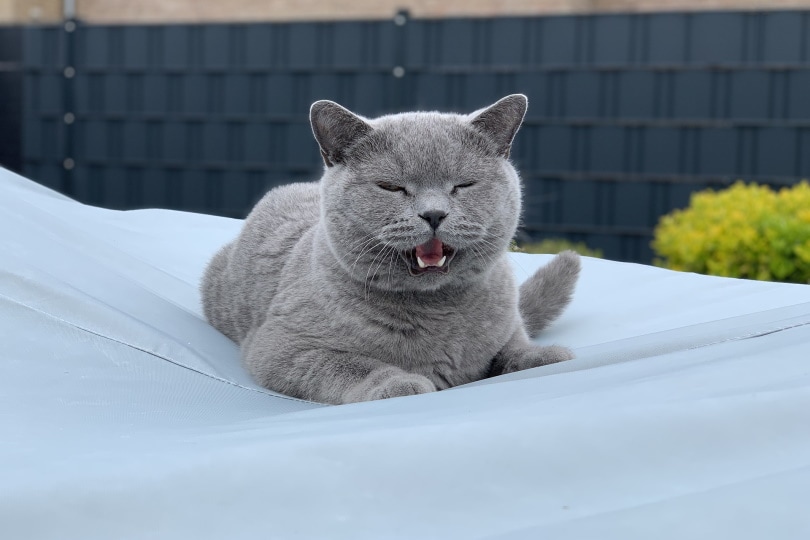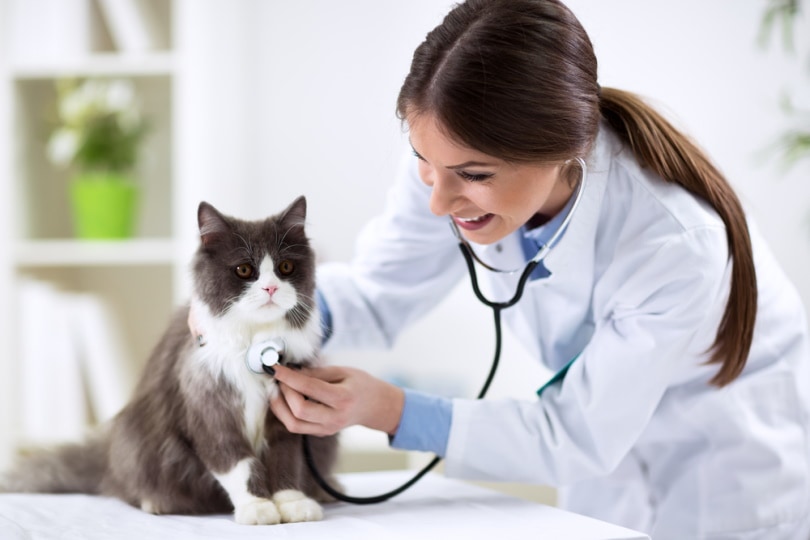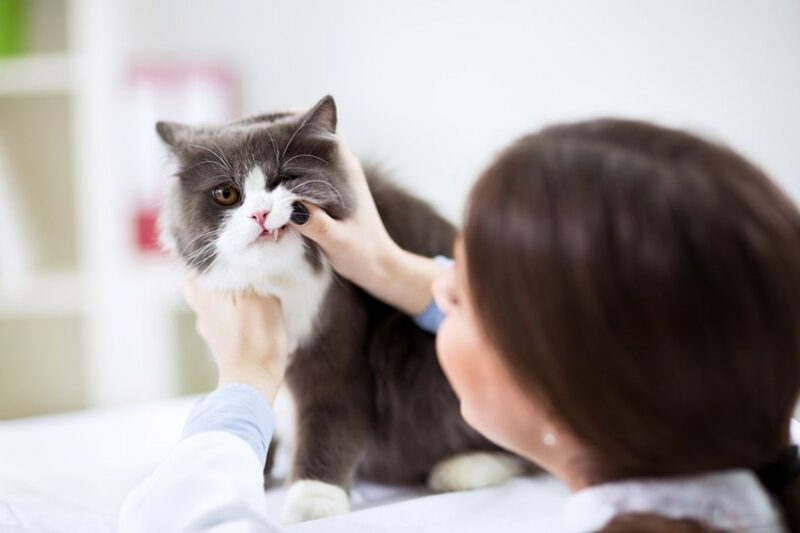
Click to Skip Ahead
Cat sneezes can be adorable sounds, but when sneezing becomes a constant occurrence, it can be concerning. It is especially worrying when you suspect that sneezing may be a symptom of an underlying issue.
So, what could cause your cat to sneeze so frequently? There are several reasons why, but two of the primary ones are infections and environmental irritants. In this article, we will discuss infections and irritants that may lead to excessive sneezing, as well as other potential causes. If you want to learn more about these causes as well as how they are diagnosed and treated, keep reading below.
The 6 Common Causes for Cats Sneezing
Infections
Infections are a common cause of sneezing, especially upper respiratory infections. These infections can be viral or bacterial in nature.
1. Viral Infection
There are several viral infections that cats may suffer from. Among the most common feline viral infections are the feline herpes virus, which predominantly impacts the functions of the eye and the upper respiratory system, and the feline calicivirus, which mainly affects the upper respiratory system.
Other infections, such as feline immunodeficiency virus (FIV) and feline leukemia, could also be to blame. However, there are so many possibilities that the only way to determine the cause is to consult your vet.

2. Bacterial Infection
Regarding bacterial infections, the most likely culprits are Bordetella bronchiseptica and Chlamydophila felis.
Feline bordetellosis is a highly contagious upper respiratory disease. The bacteria Bordetella bronchiseptica is the culprit, leading to issues such as the inflammation of the trachea and the bronchi. It is mainly spread through direct contact with an infected cat or through the air.
Chlamydia felis primarily causes conjunctivitis, rhinitis, and respiratory problems. This bacteria is endemic among domestic cats all over the world.
Much like viral infections, many bacterial infections could be responsible for your cat’s sneezing. Talking to your vet is the best way to determine which one your cat is struggling with.
Environmental Irritants
3. Scents or Debris
Like humans, the scents or debris in the air may lead to sneezing. Plenty of irritants in the environment that may be causing your cat to sneeze, so look for patterns. If your cat sneezes every time you light a specific candle, that could be the cause.
Some possible environmental triggers include smoke, pesticides, perfume, dust, pollen, cat litter, and mold. Allergies could be the cause as well. Typically, if your cat is suffering from allergies, its eyes and skin could also also be irritated. If you think an allergy may be the cause, pay attention to any red swollen eyes or itching.

Other Potential Causes
Beyond infections and irritants, there are other reasons that your cat may frequently be sneezing. Take a look at some of these options and see if any apply to your cat.
4. Foreign Object
If your cat has accidentally inhaled a small foreign body, such as a blade of grass or a dust bunny, it could cause sneezing. Sneezing is your cat’s way of trying to expel the object.
6. Dental Disease
This may surprise you, but dental disease could be causing your cat’s constant sneezing. The roots of your cat’s teeth are near the nasal passage. If the root of one of your cat’s upper teeth has become infected, it can cause inflammation and irritation in the nearby tissues, namely the barrier between the tooth and the nose.

7. Neoplasia
Neoplasia, also known as polyps or tumors, could be behind your cat’s sneezing. If tumors develop inside your cat’s nose, they can cause irritation and lead to excessive sneezing. This is especially common in senior cats.
Tumors of the nose are painful for cats. If you think your cat may have a tumor in its nose, reach out to your vet immediately.
Diagnosis
If you are concerned about your cat’s sneezing, you should take it to the vet for a diagnosis. There are many methods that your vet may employ when searching for a diagnosis. Some of the primary ones include a physical exam, biopsies, rhinoscopies, nasal lavages, x-rays, and other scans.
Treatment
Since the reasons behind excessive sneezing are so vast, the treatments are heavily dependent on the diagnosis. Therefore, it is important to consult your vet. Receiving proper treatment is the only way to ensure better health for your pet.
Some medications may be prescribed, such as antibiotics, steroids, or antihistamines. In rare cases, surgery may be required.

Conclusion
Although sneezing is generally not a huge concern, excessive sneezing is. If your cat is displaying concerning symptoms alongside its frequent sneezing, reach out to your vet right away. The sooner the problem can be recognized and addressed, the sooner your cat will be able to live a sneeze-free life.
- Related Read: Reasons Why Your Cat Sneezes on You (Based on Science)
Featured Image Credit: Marvin Otto, Pixabay







